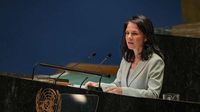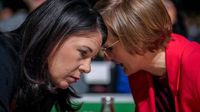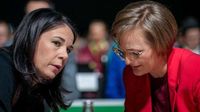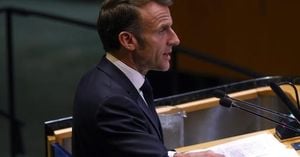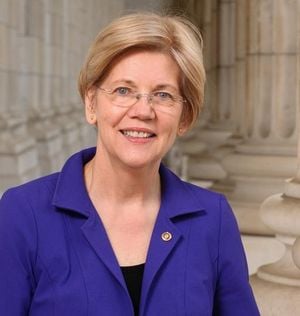In the political landscape of Germany, implications abound as Foreign Minister Annalena Baerbock is poised to head the UN General Assembly starting in September 2025. This nomination, stemming from a government prediction of a simple procedural vote in June, brings with it waves of controversy and sharp critiques.
Franziska Brantner, co-chair of Baerbock's Green Party, has stepped forward in her defense, rejecting allegations that Baerbock's nomination is part of a political deal with Friedrich Merz, leader of the opposition Christian Democratic Union. "Of course, such decisions are coordinated, but no, this is not a deal," Brantner asserted in an interview.
Baerbock herself has also defended her nomination, stating that it aligns with the precedent of other prominent figures, including former foreign ministers and prime ministers, who have held the position.
Addressing the importance of the UN General Assembly, especially given the repeated blockades by the UN Security Council, Baerbock emphasized its critical role in international diplomacy during her press conference in Beirut. She noted, “The General Assembly acts in light of the recurring blocks in the Security Council. This is why we wish to follow the trend established by many predecessors in this role.”
Initially, Helga Schmid, the former Secretary-General of the Organization for Security and Cooperation in Europe, was expected to take the role. However, she has now learned she will not be appointed, which some sources indicate she was preparing for days before the switch was announced.
Faced with criticism, the government has stood firm, with spokesperson Steffen Hebestreit declaring Baerbock to be highly qualified for the position. He confirmed that her nomination was decided in agreement with the prospective government coalition.
Nonetheless, not all voices have sided with the government’s endorsement. Christoph Heusgen, former chair of the Munich Security Conference, expressed his discontent with the decision in numerous interviews, including one with the 4p Tagesspiegel. He described it as "an outrage to replace the most experienced German diplomat with an 'outdated model.'" Heusgen labeled Baerbock a polarizing figure whose political presence is more characterized by attention-grabbing statements than by substantive groundwork.
Further amplifying the discord surrounding Baerbock's nomination, Russian officials have entered the fray, with a spokesperson deeming her candidacy inappropriate, stating, "It would be strange to see the granddaughter of a Nazi in such a role, particularly as she is believed to take pride in her grandfather’s actions during WWII." Such statements by officials like Maria Zakharova have fueled tensions further, drawing attention to the geopolitical ramifications of Baerbock's anticipated presidency.
Former SPD chairman Sigmar Gabriel has joined notable critics, labeling Schmid as a remarkable diplomat and advising Baerbock to learn from her, potentially reflecting broader discontent with the process leading to her nomination.
Additionally, Baerbock’s aspirations hold profound implications for Germany's geopolitical positioning. In correspondence with her party, she underscored that a robust German role in the UN is vital for Germany's quest for a non-permanent seat on the Security Council in 2027 and 2028, articulating that her leadership in the Assembly could play a key role in this endeavor.
The political mechanics of Baerbock's candidacy continue to unfold. Reports surfaced suggesting that Merz may have played a role in her nomination, with claims that she reached out to him after her party's defeat in the federal elections. This interaction has raised eyebrows, prompting speculation regarding the nature of political exchanges in the lead-up to her nomination.
Intensely amid this backdrop, Baerbock describes her journey in politics candidly, expressing her desire to remain as Foreign Minister, though acknowledging the reality of departing this domestic political stage for what is expected to be a high-profile international role.
Many observers noted that Baerbock’s ascendance signals a critical point in German diplomacy, as this will mark the first time since the Cold War that a German will lead the UN General Assembly, following Rüdiger von Wechmann's term in 1980.
With Baerbock's nomination seemingly set to pass through the election mechanism with little resistance, the political community continues to scrutinize how her leadership style will translate to international diplomacy. Her track record, which includes meeting with a variety of global leaders and engaging directly on contentious topics, will be closely monitored.
As Baerbock prepares for her significant responsibility, she indicates a positive interpretation of her nomination. In a message to her party members, she reaffirms her commitment, stating her new position would allow her to contribute significantly to this public dialogue and global agenda.
In summary, as Annalena Baerbock transitions from a domestic political arena to an international leadership role, the fallout from her nomination is bound to shape Germany's foreign policy landscape significantly, and how she navigates these criticisms will be instrumental to her effectiveness in office.
